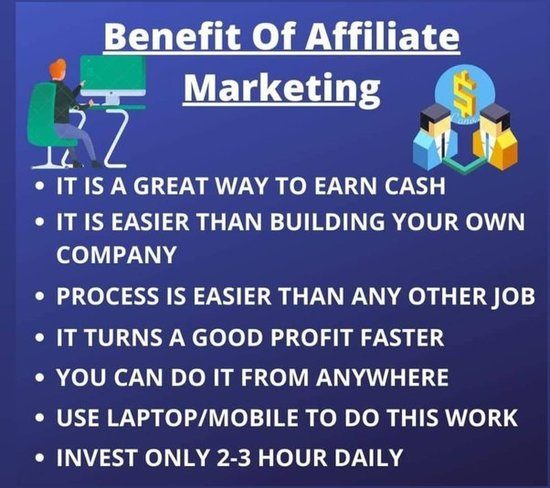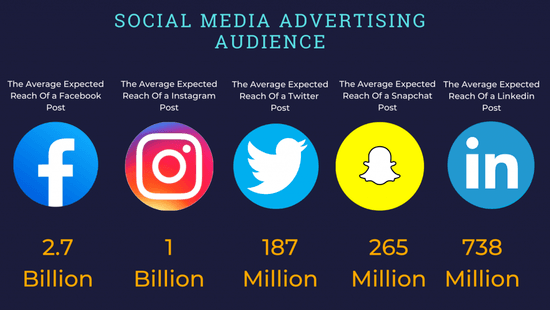I’m going to kick things off with a straightforward look at Affiliate Marketing. Basically, it’s a performance-based marketing tactic where businesses reward affiliates for each customer brought in. Let’s take a look at pros and cons of the Affiliate Marketing.
A quick introduction to the Affiliate Marketing
This isn’t just about making quick bucks; it’s a strategic move that has been around since the early days of the internet. Over time, it has evolved as a key player in the e-commerce ecosystem.
Why should you care? Well, understanding affiliate marketing is crucial, not only if you’re considering diving into this world but also if you’re shopping online. It’s pretty wild how intertwined it is with the whole online shopping experience nowadays.

You’re going to find out about the enticing aspects that make affiliate marketing so popular, but also about the possible pitfalls that you should watch out for. This approach will give you a balanced view, whether you’re a budding entrepreneur, a content creator, or just curious about how it all works.
Benefits of Affiliate Marketing: Why It’s Popular
Now, stepping into the world of affiliate marketing comes with a set of advantages that make it an attractive avenue for both individuals looking to generate income and businesses aiming to expand their reach. Let me walk you through some of these perks.

For starters, the barrier to entry is remarkably low. If you’re thinking about dipping your toes into affiliate marketing, you don’t need a hefty initial investment or even a physical product. It’s about as democratic as it gets – all you need is an online presence and the willingness to learn.
Next up is the cost-effectiveness. Those promoting products—known as affiliates—don’t have to fret about manufacturing, storing, or shipping. This means there’s a significant reduction in costs compared to running a traditional business. For businesses, they only pay for results, making their marketing spend highly efficient.

Let’s talk about income diversity. Affiliates can promote multiple products from different niches, securing various income streams. This flexibility allows affiliates to adjust their strategies and promote products they genuinely believe in, or that resonate with their audience.
Lastly, performance-based earnings ensure that the hard work pays off. Through commission structures, affiliates are rewarded in alignment with their successes, which can be highly motivating. Your earnings essentially reflect the amount of effort and smart tactics you implement.
Assessing the Risks: Challenges of Affiliate Marketing
You’re going to find out about the less-discussed side of affiliate marketing now – the challenges. It’s not all passive income and high-fives; there are some real hurdles to consider.
One of the first things you may encounter is the potential for lower profit margins. Sometimes what you earn per sale can be disappointingly small. Especially if you’re dealing with high-competition niches, the slice of the pie offered to affiliates might not seem worth the plate it’s served on.

Then there’s the dependency on third-party platforms. You’re building your house on someone else’s land here – one policy change can wipe out your income stream. It’s essential to diversify and not put all your eggs in one platform’s basket.
==> You might be also interested in: TOP 5 The Most Profitable Affiliate Programs
Quality control issues with affiliate products can reflect poorly on you. Remember, your recommendations are a reflection of your brand. If the product underperforms or the customer service is lacking, guess who the customer is going to be frustrated with? Yes, you!
Lastly, consider the competition and market saturation. By the time you’re promoting a product, scores of others have already flooded the market, making it an uphill battle to get noticed.
So, now that we’ve looked at the potential risks and downfalls, let’s turn the corner and explore the numbers game in affiliate marketing – because ultimately, success is not just about what you sell but also about how well it pays off.
Financial Implications: Calculating the Costs and Rewards
I’m going to dive right into the nitty-gritty of the financial implications of affiliate marketing. This isn’t just about the attractive commission rates you see advertised; it’s also about understanding the costs involved and the real potential for earning.
First up, let’s talk commission models. You’re going to find out about pay-per-sale, pay-per-click, and pay-per-lead, and how each affects your bottom line. Choose something that resonates with you and matches the type of audience you attract.

I’m here to help you look at the overhead costs too. Whether it’s website maintenance, subscription services for email marketing, or costs for creating content, every penny counts when it’s going against your affiliate earnings.
Evaluating the potential return on investment (ROI) is crucial. If you’re shelling out more money on ads than the commissions you’re earning, you need to adjust your approach. Remember, you can always adjust your approach down the road.
Don’t worry too much about it, though. I really hope that you’re beginning to see that while affiliate marketing can be a lucrative avenue, it demands careful financial planning and monitoring.
Considering the long-term financial sustainability is the end game. That’s going to include looking at consistent performance, diversifying affiliate programs, and knowing when to cut ties with underperforming products.
Affiliate Marketing for Content Creators: A Strategic Perspective
I’m going to walk you through the essence of a strategic perspective for content creators in affiliate marketing. That’s going to include essential steps like choosing the right niche, which means opting for an area you’re passionate about and that has sufficient demand to drive affiliate sales.

You’re going to find out about building a loyal audience. It’s not just about attracting eyes; it’s about keeping them glued. This requires consistent, high-quality content that solves problems or entertains.

In my opinion, authenticity is the currency of affiliate marketing for content creators. Audiences are smart, they can sniff out insincerity a mile away, so you should promote products you believe in.
Don’t worry too much about the tech side initially. You can always adjust your approach down the road. Initially, focus on tools and techniques that help you understand your audience better and track which affiliate offers resonate.
Choose something that resonates with you and your audience when promoting products. Your endorsements should feel like a natural extension of your content.
I really hope that you grasp the significance of analytics in your strategy. Regularly reviewing performance data ensures you’re on track and allows you to tweak your tactics for better results.
Ethical Considerations in Affiliate Marketing
When you’re wading into the waters of affiliate marketing, the moral compass must point north. It’s not just about selling products; it’s about maintaining the trust of your audience. This trust is the cornerstone of successful affiliate partnerships.
I’m going to emphasize transparency first. Your audience deserves honesty. Make sure they know which links are affiliate links. It’s not only ethical, it’s often a legal requirement. We’re talking about FTC guidelines here, which require proper disclosures to avoid deceiving consumers.

Disclosures should be clear, conspicuous, and close to the affiliate link. It’s not just a box-ticking exercise. This practice fosters trust, and let’s face it, a trustworthy brand is more likely to turn visitors into repeat customers.
In my opinion, choosing products to promote involves more than potential earnings. You should believe in the products you’re recommending. Promote items that you’ve tested or thoroughly researched and would genuinely suggest to friends or family.
Sometimes, affiliate marketers face ethical dilemmas. Let’s say a product isn’t up to snuff, but the commission is tempting. What do you do? I shoot for the latter and skip the quick buck. After all, promoting subpar products can hurt your reputation in the long run.

So, choose something that resonates with you. Choosing wisely ensures you provide value to your audience and keep your credibility intact.
Now, looking ahead, how can you ensure that your affiliate marketing strategy stays on the right side of ethics and legalities? Stay informed about the latest FTC guidelines, never stop learning about your niche, and prioritize the needs and interests of your audience.
Navigating the Future: Adapting to Changes in Affiliate Marketing
I’m going to wrap up by looking forward to the future of affiliate marketing. A lot is happening very quickly in this field, and if you want to stay ahead of the curve, you need to stay informed and agile. That’s going to include keeping your finger on the pulse of industry trends and emerging technologies.

You’re going to find out about the importance of embracing new platforms, especially as social media continues to evolve. Choose something that resonates with you and your audience—there’s a lot of opportunity in exploring channels that might not be oversaturated yet.
Don’t worry too much about every new trend, but be aware that consumer behaviors shift over time. This means adapting your approach and marketing strategies is critical. If you want to flourish in the affiliate marketing scene, it’s about being responsive rather than reactive.

Your first attempt doesn’t need to be your last. Affiliate marketing, like any other business, will require you to evolve and adjust your approach down the road. I’m here to remind you that flexibility and perseverance are key, as well as continuing to offer genuine value to your audience.
I really hope that this discussion has armed you with a balanced perspective on affiliate marketing. As you navigate through this exciting domain, remember, it’s not just about choosing the right products or partners, it’s also about staying true to your values and the trust of your audience. With that, you’re well-equipped to ride the waves of change and grab the opportunities that lie ahead in affiliate marketing.
If you have any questions, please let me know in the comment section below and I’ll be happy to help you.
Kind regards,
Błażej

Hello Błażej,
It seems you’ve provided a comprehensive and insightful overview of the pros and cons of affiliate marketing. Your article does a fantastic job at explaining the nuances of this marketing strategy, offering valuable information for anyone interested in or currently engaged in affiliate marketing. Here are a few additional thoughts that might further enrich your discussion:
Emphasize the role of evolving technology in affiliate marketing. For instance, advancements in data analytics and AI can help affiliates better understand their audience and optimize their marketing strategies.
Discuss how affiliate marketing is increasingly intertwined with influencer marketing, especially on social media platforms. Influencers can leverage their followers to promote products through affiliate links, which can be a very effective strategy due to their established trust and rapport with their audience.
Highlight the importance of SEO in affiliate marketing. Affiliates often rely on organic search traffic to earn commissions, so understanding and implementing SEO best practices is crucial for success.
Stress the importance of diversifying affiliate marketing efforts across different products, niches, and platforms to mitigate risks associated with market changes or platform-specific policy updates.
Expand on the need for affiliates to stay updated on legal requirements and ethical standards in different regions or countries. This is particularly relevant with the increasing scrutiny on digital privacy and advertising practices.
Discuss strategies for sustaining and growing an affiliate marketing business in the long term, such as building a personal brand, creating evergreen content, or investing in a loyal community.
Including a few examples or case studies of successful affiliate marketing campaigns or individuals who have excelled in this field can provide readers with practical insights and inspiration.
Your article is already thorough and informative, but these additional points can offer even more depth to your readers, especially those who are seriously considering affiliate marketing as a career or business venture. Keep up the great work!
Hi Demavend!
I see that you are an experienced person who has the appropriate knowledge and I am very happy about it. Thank you for your suggestions and I will definitely take them into account. Sometimes it’s not possible to include everything in a given article, but you are 100% right. When it comes to SEO, I wrote another article on this subject, so I will post a link to the article specifically about SEO.
Kind regards!
Your blog post on Affiliate Marketing offers a well-rounded exploration of its pros and cons, providing valuable insights for both beginners and those already in the field. The clear delineation of benefits like low entry barriers, cost-effectiveness, and income diversity, coupled with thoughtful advice on risk assessment, financial implications, and strategic perspectives for content creators, makes for a comprehensive guide.
Your emphasis on authenticity, ethical considerations, and the importance of trust in affiliate marketing adds a commendable layer of integrity. The forward-looking perspective on adapting to industry changes, staying informed about trends, and the reminder of flexibility and perseverance contribute to a holistic understanding of the affiliate marketing landscape.
Overall, your post equips readers with a balanced perspective, ensuring they navigate the realm of affiliate marketing with practical insights and ethical considerations.
Hi JR!
Many thanks for YouTube comment! Im happy that you like my article!
Kind regards
As someone new to affiliate marketing, I’m curious about the impact on customer trust and brand image. While the income potential is appealing, I wonder how promoting various products affects the perceived authenticity and reliability of a content creator. Are there strategies to balance monetization with maintaining a trustworthy personal or brand image?
Hi Corey!
Of course, there are many strategies. I believe that it is best to promote products that we actually know and use, while showing how they work. It is important that the promotion of these products or services should not be another advertisement where we only hear: “buy this, buy that!”, but rather should be based on an objective presentation of both advantages and disadvantages.